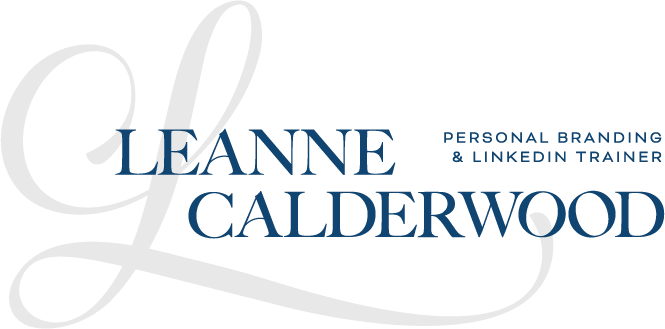If you still think LinkedIn is just a place to post your résumé and quietly…

Unlocking Your Uniqueness: Why Every Professional Deserves a Personal Brand
If you’ve found yourself on this post, I’m guessing at one time or another, you felt like you’re just another face in the crowd, quietly blending into the backdrop of your industry.
In a world teeming with noise, where everyone seems to shout their achievements from the rooftops, it’s easy to feel overshadowed and insignificant, especially as an introvert. Many of us believe that we aren’t “interesting enough” to stand out.
Luckily, this narrative we tell ourselves, well, it just isn’t true. Everyone has a story that can resonate with someone else. Your experiences, no matter how ordinary they may seem, have the power to inspire, motivate, and even change someone else’s day—or life. It’s not just about being heard; it’s about being seen for who you truly are. That’s the essence of personal branding.
What is Personal Branding?
Personal branding is the practice of marketing yourself and your career as brands. It’s the intentional effort to create and influence public perception by positioning yourself as an authority in your industry, elevating your credibility, and differentiating yourself from the competition.
Personal branding is a collection of intentional activities that help shape how others perceive us. We take control of the narrative that whispers, “What are they saying about me when I’m not in the room?”. When you intentionally share parts of your brand story, you can predict what they are saying.
Why We Sometimes Doubt That We Deserve a Brand
Many professionals, especially introverts who thrive in quiet and thoughtful environments, often encounter mental roadblocks when it comes to personal branding. Here are some reasons why they might feel undeserving of developing their own brand:
-
Underestimating Personal Achievements:
- Often, individuals judge their own achievements as less noteworthy compared to those of others they observe, especially in today’s highlight-reel culture on social media. This can lead to feelings that they haven’t accomplished enough to merit a personal brand.
-
Misconception About What Constitutes a Brand:
- There’s a common misconception that a personal brand must be built on public accolades, a dynamic persona, or groundbreaking innovations. This can make some feel that their quieter, steadier contributions aren’t brand-worthy.
-
Fear of Self-Promotion:
- Particularly among introverts, there’s often a discomfort with self-promotion, stemming from a belief that it requires boastfulness or egoism. They might worry that building a personal brand could come off as inauthentic or pretentious.
-
Lack of Role Models:
- Without visible examples of individuals who share similar traits and have cultivated strong personal brands, it can be hard for some to envision themselves undertaking the same journey. They might feel that personal branding is reserved for certain types of personalities or industries.
-
Feeling Overwhelmed by the Process:
- The thought of developing and maintaining a personal brand might seem daunting. Some believe it requires constant attention and creativity, which can be intimidating, especially to those who feel their strengths lie elsewhere.
-
Believing That Their Work Should Speak for Itself:
- Many professionals hold the conviction that their work output alone should be enough to advance their careers. They might view personal branding as an unnecessary or even superficial layer that detracts from their actual skills and contributions. I wrote a blog post recently that addresses this belief, you can read that post here.
-
Associating Branding with Extroversion:
- There’s a stereotype that effective personal branding is synonymous with extroversion—being outgoing, sociable, and comfortable in the spotlight. This can deter more reserved individuals, who might believe they lack the “right” personality to develop a compelling brand.
-
Impostor Syndrome:
- This psychological pattern causes individuals to doubt their accomplishments and fear being exposed as a “fraud.” Even well-qualified professionals might feel they aren’t genuinely worthy of the recognition that comes with a strong personal brand. I wrote a blog post recently all about imposter syndrome, you can access those tips here.
By understanding these common concerns and misconceptions, professionals can begin to see how personal branding is not just about outward appearances or loud achievements. It’s about authentically representing your values, contributions, and professional journey in a way that resonates with others—something every individual, regardless of their personality or career stage, truly deserves.
Why You Definitely Have a Story to Tell and a Brand to Build
The concept of personal branding can often feel intimidating, especially to those who view themselves as ordinary or unremarkable. However, every professional has a unique story that deserves to be shared because:
-
Every Experience is Unique:
- Even if you think your day-to-day tasks or career path is “typical,” the way you approach problems, interact with colleagues, and overcome challenges is unique to you. These experiences provide insights and lessons that can benefit others, making your personal narrative both valuable and interesting.
-
Industries Thrive On Diversity of Thought:
- Your individual perspective can add diversity to the existing dialogue in your field, which is crucial for innovation and progress. Your thoughts and ideas can challenge conventional wisdom and inspire others to think differently.
-
We Crave Relatability and Inspiration:
- Stories of personal growth, challenges faced, and obstacles overcome are universally relatable and deeply inspiring. By sharing your journey, you can motivate others who see elements of their path mirrored in yours. This can be especially powerful coming from someone who may not naturally seek the spotlight but shines in their capabilities and integrity.
-
Helps Establish Authentic Connections:
- Sharing your story helps build connections with others. People gravitate towards authenticity and can feel more engaged with professionals who aren’t afraid to show their true selves. This connection fosters trust and strengthens professional relationships.
-
Highlight Our Achievements (Quietly):
- Introverts often achieve great things away from the limelight. By building a personal brand, you highlight these achievements and ensure they are recognized and appreciated, not overlooked.
-
We Can Empower Others:
- Your story can empower others, especially those who identify with your experiences or challenges. Seeing another introvert navigate professional landscapes successfully can be incredibly empowering and encouraging.
-
Use Branding as a Tool for Control:
- Developing a personal brand allows you to control the narrative around your professional life. Instead of letting others define who you are and what you stand for, you get to make those definitions yourself and present them on your terms.
-
It Can Grow Your Influence:
- A personal brand extends your influence beyond your immediate circle, opening doors to new opportunities and expanding your impact in your industry. This is invaluable in building a career that is not only successful but also fulfilling.
Starting Tips for Building Your Personal Brand
Not sure how to get started? Consider this to help inspire you to grow your own brand.
- Define What Makes You, You:
- Identify what differentiates you from your peers. Consider your passions, key strengths, and personal values. These form the cornerstone of your personal brand.
- Craft Your Story:
- Think about the key moments in your career and life that have shaped you. How have these moments influenced your professional philosophy or approach? Crafting your story around these pivotal points helps make your narrative compelling and cohesive.
- Be Consistent:
- Consistency is key in personal branding. Ensure that your communications, online presence, and professional interactions all reflect the same core messages and values as it helps reinforce your brand and makes it memorable.
- Engage with Your Audience:
- Share your thoughts and stories through platforms where your audience is active—be it LinkedIn, industry forums, or at conferences. Engagement builds visibility and helps establish your credibility.
- Seek Feedback:
- Engage with mentors, peers, and your network to get feedback on how your brand is perceived. This feedback can be invaluable in refining and honing your brand over time.
Friends, don’t let the noise of others drown out your narrative.
Start today by embracing your unique experiences and perspectives. Share them boldly and watch as your personal brand begins to illuminate paths—not just for yourself but for others as well.
To your branding success,
Leanne
PS. Need more inspiration? Join my upcoming free webinar – Introverts Unleashed – 5 Key Questions Your Online Presence Should Answer – you can learn more and save your spot here!
RELATED – BALANCING ACT: NAVIGATING PERSONAL AND PROFESSIONAL BOUNDARIES ON LINKEDIN
RELATED – Your Untapped Voice: The Power of Personal Branding for Everyone
RELATED – The risks of not starting a personal brand in 2024
RELATED- Everyday Expertise: Leveraging Your Life Experiences for a Stronger Personal Brand
RELATED – Why It’s Never Too Late to Start Building Your Personal Brand




